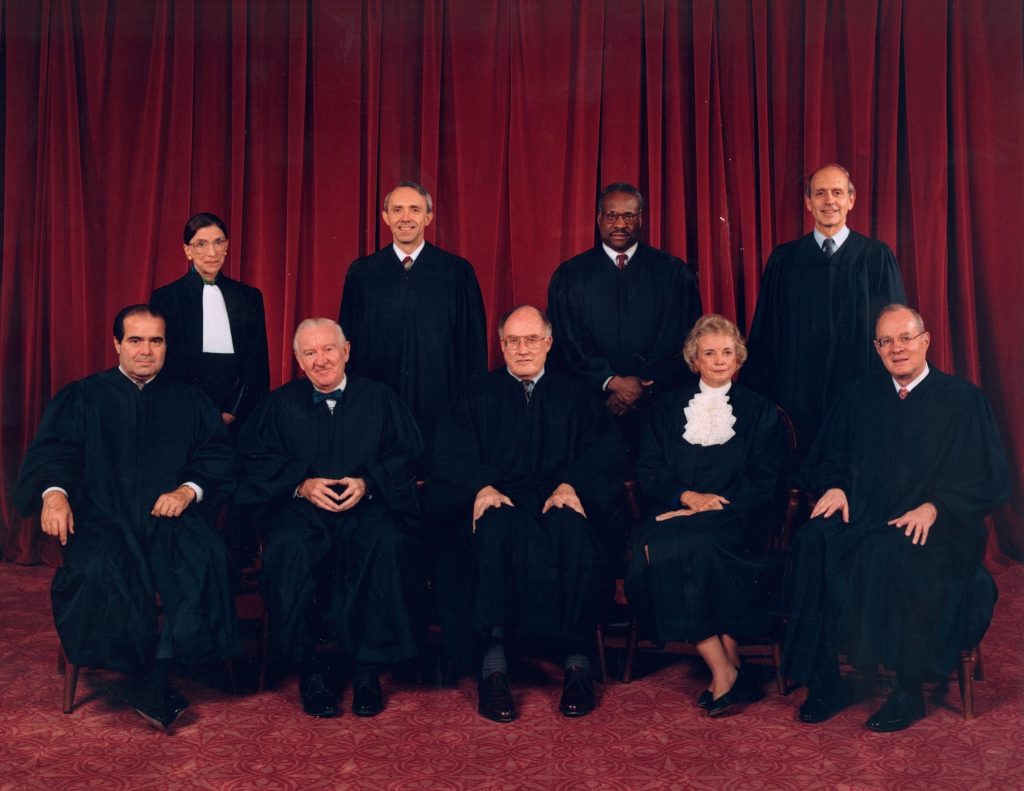
The Seminole Tribe of Florida

The Rehnquist Court (1994-2005). Seated, from left to right: Antonin Scalia and John Paul Stevens, Chief Justice William H. Rehnquist, and Justices Sandra Day O'Connor and Anthony M. Kennedy. Standing, from left to right: Ruth Bader Ginsburg, David H. Souter, Clarence Thomas, and Stephen G. Breyer.

The Seminole Tribe of Florida v. Florida (1996)

"It is inherent in the nature of sovereignty not to be amenable to the suit of an individual without its consent"

“Even when the Constitution vests in Congress complete lawmaking authority over a particular area,” Chief Justice Rehnquist wrote, such as the regulation of interstate or Indian commerce, “the Eleventh Amendment prevents congressional authorization of suits by private parties against unconsenting States.”

The Eleventh Amendment appears to limit only the Article III diversity jurisdiction of the federal courts. Article III specifically refers to a citizen of one state suing another state, which is what makes the parties “diverse.”

“Although the text of the Amendment would appear to restrict only the Article III diversity jurisdiction of the federal courts, ‘we have understood the Eleventh Amendment to stand not so much for what it says, but for the presupposition ... which it confirms.’”

"Federal jurisdiction over suits against unconsenting States ‘was not contemplated by the Constitution when establishing the judicial power of the United States.'"

According to Justice Souter, “we have two Eleventh Amendments, the one ratified in 1795, the other (so-called) invented by the Court nearly a century later in Hans v. Louisiana.”
The Seminole Tribe of Florida sued the state of Florida in federal court for violating the Indian Gaming Regulatory Act. Here, the state did not waive its sovereign immunity. The Supreme Court held that Congress could not use its Commerce Clause powers to abrogate Florida’s sovereign immunity.
Chief Justice Rehnquist wrote the majority opinion for a 5-4 Court. He quoted Hans v. Louisiana’s rejection of a literal interpretation of the Eleventh Amendment: “Although the text of the Amendment would appear to restrict only the Article III diversity jurisdiction of the federal courts, ‘we have understood the Eleventh Amendment to stand not so much for what it says, but for the presupposition . . . which it confirms.’ ”